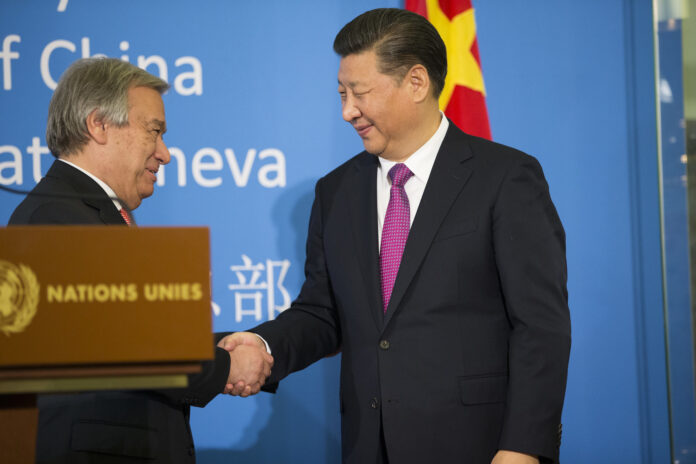Author: Ministry of Foreign Affairs, People’s Republic of China
Organization/Publisher: Embassy of the People’s Republic of China in the USA
Date/Place: September 10, 2020/China
Type of Literature: Policy Statement
Word Count: 4670
Link: http://www.china-embassy.org/eng/zgyw/t1813751.htm
Keywords: China, United Nations, Multi-lateralism, World Health Organization, Global ceasefire, Palestine, COVID-19
Brief:
With a stress on reviving multi-lateralism, China in this policy statement on the United Nations’ palladium jubilee reveals its view of international relations in the post-COVID-19 era.
In its Position Paper, as Beijing is still facing tremendous pressure after the deadly coronavirus was first reported in Wuhan city last December, China decries “sabotage and unilateralism.” It says all countries need to come together against “certain countries and political forces” who keep playing the “blame game, clamoring for ‘decoupling,’ and pulling out of international organizations and agreements.” China insists “peace and development remain the theme of our times,” and calls for supporting Iran’s nuclear development which has faced a breakdown after the US unilaterally pulled out of the multi-party deal. Beijing also asserts its position on Palestine, calling for a two-state solution while supporting the UN Secretary General’s call for a global ceasefire amid the COVID-19 pandemic. On Afghanistan, Beijing called for talks and a political settlement. The paper reflects weaknesses in global public health care and seeks for united efforts. Putting its weight behind Pakistan’s call for Debt Service Suspension Initiative for poorer countries, China stresses on North-South cooperation “as the main channel and South-South cooperation as a supplement.” “We should strengthen international cooperation on poverty reduction and prioritize this endeavor in implementing the 2030 Agenda so as to eradicate extreme poverty as early as possible,” the policy paper says. The paper also gives a view into China’s soft power diplomacy as Beijing claims to have assisted developing countries with 180 poverty reduction projects, 118 agricultural cooperation projects, 178 aid-for-trade projects, 103 projects on ecological conservation and climate change, 134 hospitals and clinics, and 123 educational and vocational training institutes.
By: Riyaz ul Khaliq, CIGA Non-Resident Research Associate




